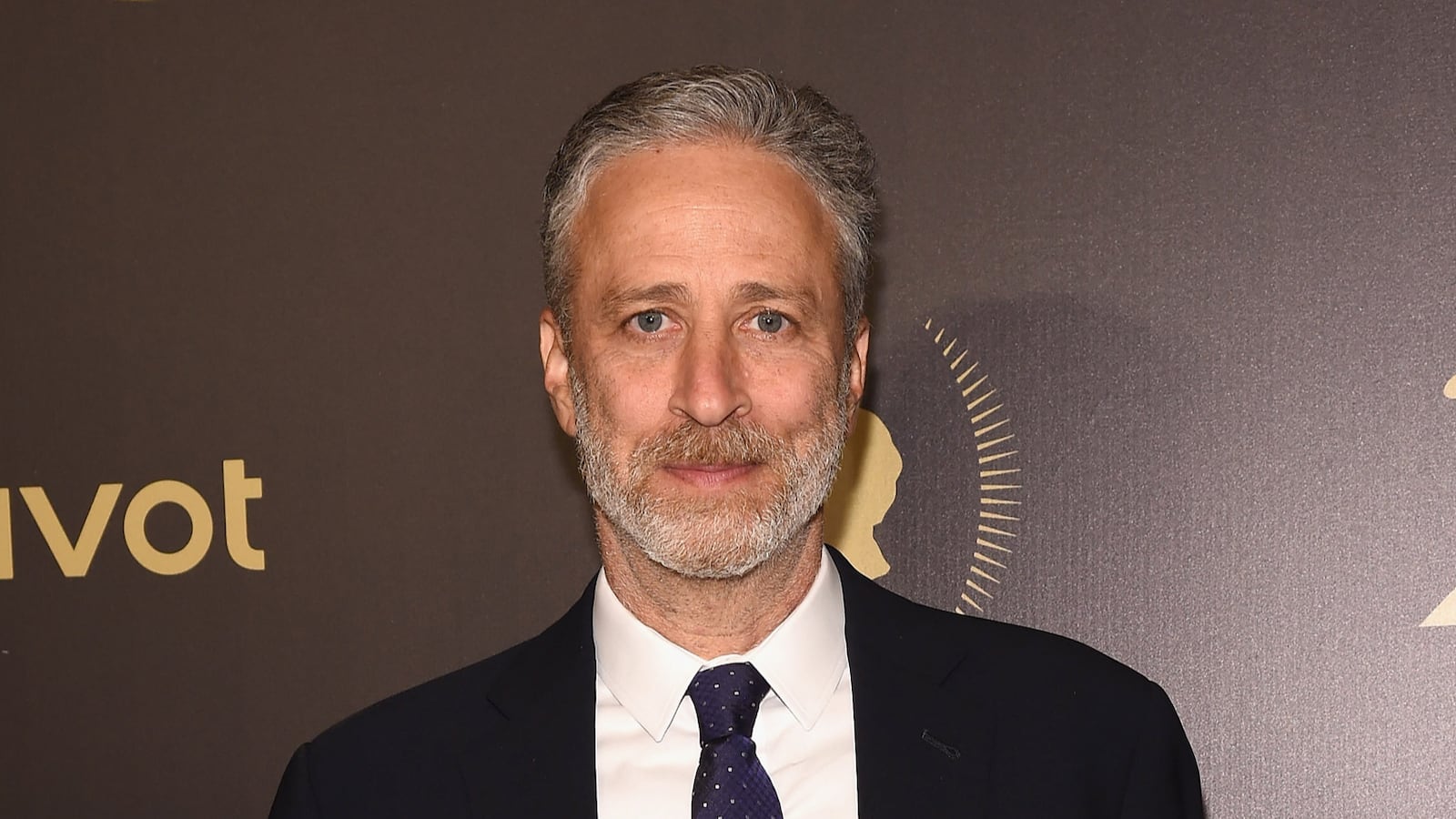Between the novel coronavirus pandemic and, now, the protests that have erupted demanding justice for Black people murdered by police, it’s a pretty awkward time to have a movie coming out. Jon Stewart, who will debut his new film Irresistible on demand June 26, knows this well. “It’s like showing up to a plane crash with a chocolate bar,” the comedian told The New York Times in an interview published Monday. “There’s tragedy everywhere, and you’re like, ‘Uh, does anybody want chocolate?’ It feels ridiculous.”
“But what doesn’t feel ridiculous,” Stewart added, “is to continue to fight for nuance and precision and solutions.”
In Stewart’s interview with journalist David Marchese, which is well worth reading in full, the comedian addressed the protests that have broken out in the wake of George Floyd’s death at the hands of police—and explained why he believes focusing on the police does not address the core underlying problem.
“I’d like to say I’m surprised by what happened to him, but I’m not,” Stewart said of George Floyd. “This is a cycle, and I feel that in some ways, the issue is that we’re addressing the wrong problem. We continue to make this about the police—the how of it. How can they police? Is it about sensitivity and de-escalation training and community policing? All that can make for a less-egregious relationship between the police and people of color. But the how isn’t as important as the why, which we never address.”
“The police are a reflection of a society,” Stewart continued. “They’re not a rogue alien organization that came down to torment the black community. They’re enforcing segregation. Segregation is legally over, but it never ended. The police are, in some respects, a border patrol, and they patrol the border between the two Americas. We have that so that the rest of us don’t have to deal with it.”
Stewart does not deny that police brutality is a major issue—but at the same time, he emphasizes that they can become a scapegoat that allows white Americans to ignore the broader systemic racism at hand.
“When you give someone a badge and a gun, that’s going to create its own issues, and there’s no question that those issues can be addressed with greater accountability,” he said, adding later, “But I still believe that the root of this problem is the society that we’ve created that contains this schism, and we don’t deal with it, because we’ve outsourced our accountability to the police.”
Stewart also recalled a bit that Chris Rock used to perform, in which he’d say, ‘‘No white person wants to change places with a black person. They don’t even want to exchange places with me, and I’m rich.’’
“It’s true,” Stewart said. “There’s not a white person out there who would want to be treated like even a successful black person in this country. And if we don’t address the why of that treatment, the how is just window dressing. You know, we’re in a bizarre time of quarantine. White people lasted six weeks and then stormed a state building with rifles, shouting: ‘Give me liberty! This is causing economic distress! I’m not going to wear a mask, because that’s tyranny!’ That’s six weeks versus 400 years of quarantining a race of people. The policing is an issue, but it’s the least of it. We use the police as surrogates to quarantine these racial and economic inequalities so that we don’t have to deal with them.”




